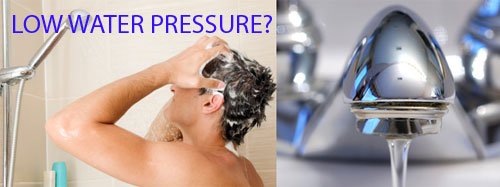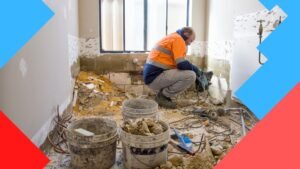Low Water Pressure – A Hassle For Homeowners
One of the biggest problems a homeowner can face is low water pressure. It turns normal, everyday tasks like showering or washing the dishes into a major headache, and wastes a huge amount of time while you wait for trickling faucets, showers and slow-filling toilets. If you are experiencing low water pressure, these are some of the things you might do to alleviate the problem.
The Causes of Low Water Pressure – and How to Fix the Problem.
There are a number of different issues which could cause low water pressure in your home. Factors like old pipes, leaks, faulty water heaters, defective valves and broken pressure regulators can all cause or contribute to low water pressure.
Low Pressure Throughout The Dwelling/Building
If you find that your water pressure is low in all your faucets and plumbing fixtures, it is usually a problem in your water supply line. Sometimes, the problem is with the local street supply. Installing a supplemental pump to boost the pressure might be a solution in this case.
If you have water pressure problems at the supply intake, it may be caused by a defective water pressure regulator, which is designed to reduce the water pressure from the street level to a more acceptable level in your home. These regulators can wear out over time, and when they do, you will have a problem with your water pressure. A licensed plumber can easily identify if this is the cause of your problem, and these regulators can usually repair or replace these defective regulators. Sometimes, a simple fine-tuning can do the trick.
What To Expect From Your Plumber?
The first thing your plumber will do is to slowly adjust the inlet valve to make the water pressure increase. This must be done gradually. At the same time, the plumber will check for the possible presence of leaks. If you do not experience an immediate increase in your water pressure when you turn on a faucet – or if water starts suddenly shooting all over the place – it means you may have a supply breach. Your plumber will look to see if there is any moisture or water dripping near valves, joints, straight runs of pipe or at building entry points. If the plumber finds any leak, the first thing he will do is to shut off the water supply. Then he will repair/fix the place where the leak is found.
If this doesn’t work, your low water pressure could be due to accumulation of scale inside the pipes. Especially in older homes, the build-up of scale effectively narrows the width of the pipe, thus limiting the amount of water that can flow through. The only thing to do in this case is to thoroughly clean and scour the insides of the pipes.
Flow Problems With a Single Faucet
The scale accumulation that occurs in your pipes can also occur inside an individual faucet. Fixing this is much easier. Most kitchen faucets can be unscrewed at the end of the spout. Then remove the aerator screen located inside the faucet. These aerators, designed to conserve water and improve the “feel” of the flowing water by breaking it up into smaller drops. Scaly sediment tends to build up and will eventually clog the aerator screen.
If the aerator screen is clogged with sediment, it can easily be replaced. If you discover visible blockages, you can clean the screen with either a professional-grade calcium remover or a solution of vinegar and warm water. Or you can replace the old aerator screen with a new one. (Make sure it’s the same size.) If you notice deposits have accumulated on other parts of the faucet, use the same cleaners and a soft brush to remove the built-up sediment. When you’re done cleaning and scraping, dry all the parts and then reassemble the fixture.
In the bathroom sinks and shower heads may also become clogged due to sediment build-up. You can clean out the fixture in the same way you cleaned out the kitchen faucet, or you can replace or upgrade your fixture.
Water Pressure Problems Occurring at the Same of Day??
If you are experiencing low water pressure at the same time each day – in the morning or evening when everyone around you is taking a shower – the only way to alleviate this is to install a booster pump. Or shower at another time, when fewer people are using the water. If you experience low water pressure only in a certain supply line – say the hot or cold water line – you should inspect other appliances in your home, particularly your hot water heater.
Get The Right Plumbing Professional To Diagnose and Repair
If these solutions do not resolve your problems with low water pressure, you can call the city and ask them to come out and take a look. You usually do not have to pay for this service. If the city can’t help you, you will need the services of a qualified, licensed plumber.
A professional plumber has the knowledge and the right tools to diagnose exactly what is causing your low water pressure. A good plumber will be able to diagnose your problem and recommend solutions. With a little luck, your homeowner’s insurance will cover the cost of fixing water pressure problems due to broken or defective appliances or leaks.






